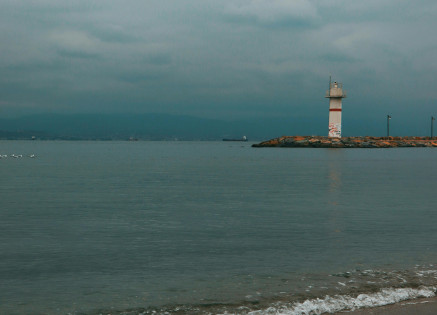Copyright © 2025 lmitac.com All Rights Reserved. Contact - Terms and Conditions - Privacy Policy - Quality Policy - Become an instructor - Vacancies - Sitemap
London Maritime Academy is a trade name for London Premier Groupversion: 2.9.0
London Maritime Academy is a trade name for London Premier Group

Posted on : 11/26/2024, 8:24:54 PM
The International Maritime Organisation highlights the importance of maritime security in all the rules, regulations, and programs implemented to protect ships, vessels, ports, trade, and the marine environment.
Additionally, the IMO supports the maritime security program (MSP) in all aspects of the maritime field, with a comprehensive maritime security fleet program that covers all operations, and procedures on coast, commerce vessels and ships.
Continue reading our article if you are interested in learning more about the IMO Maritime Security Program (MSP), how it works, and the main components on the national and international levels.
To identify the maritime security program based on the IMO, we can say that the program MSP prescribes all the designated measures followed and implemented to protect ships, fleet vessels, ports, offshore platforms, maritime agencies, and all maritime activities from potential threats in any fleet phase or region.
These maritime threats could include, but are not limited to, piracy, armed robbery, terrorism, smuggling, war, or cyberattacks.
Moreover, implementing the maritime security program works based on the International Ship and Port Facility Security (ISPS) Code and the Transportation Security Plan Program (TSP) document to organise and manage vessels, facilities, and operators on international and national waters.
In other words, the maritime security program (MSP) is a subtitle framework of IMO rule, that maintains safety on the ocean with effective maritime risk management strategies, secured exchange and communications among ships and ports, and modern technologies to protect international and national maritime trade.
If you are planning to understand all about maritime administration and security programs then coming to London from France would be the right choice for your maritime career development and study program.
Now, let us introduce to you the main awarded framework of the maritime security programme (MSP) based on the IMO standards and regulations in the Pacific and other oceans:
All international commercial ships, tankers, carriers, and fleet vessels must implement the required security standards and measures to prevent risks and limit damages, and assess and develop them regularly to ensure full capacity for all fleets.
The active maritime security programme addresses international maritime security threats, and risks, with the right protocols to follow based on each condition, and defence of the operating vessel freedom and its capabilities and cargo.
Providing the best maritime security courses in London is vital for all types of naval companies to ensure following and understanding program MSP by all their employees.
A maritime security program (MSP) focuses on all activities and clarifies required safety and security standards for merchant, commercial, military, and any other ship type.

There are essential components and practices that must be followed in all maritime activities and facilities to guarantee security in all operations and defence legal fleets and flag ships based on the maritime security program (MSP).
Specific equipment, technologies, and tools are required to be installed on the vessel to keep it safe, including crewed and passenger citizens, and be able to survive environmental and human security risks without any financial resources lost.
On the other hand, there is also a unique international port security program and policy that must be followed by militarily and commercially used ports to meet required strategic safety levels and construction and infrastructure requests, maintain technical requirements, and provide regulatory compliance.
In order to pass the security maritime program, the port or the vessel must have an advanced level of technologies and innovations with an annual updating program and funding package, like automated tracking systems, and cybersecurity measures to enhance operational efficiency, navigation safety, and emergency response capability.
As we are talking about the global maritime security system that is designed by the IMO, then regulatory compliance in all established operations, projects, and procedures is a must to keep the fleet safe and protect a viable marine environment during all trips.
Being aware of your fleet surroundings is a must to detect threats early and be able to deal with them effectively. This part of the maritime security program is done by using integrated surveillance systems, AIS tracking tools, and security data sharing to advance cooperation with other flag ships.
The whole concept of the international maritime security program is protecting vessels, fleets, flagships, private ships, and maritime facilities from potential damages, issues, or hazards on the sea with regional and global agreements, studies, and plans.
Therefore, providing professional training for your French teams in London's best training institute will not only develop their skills, knowledge, and provisions but also protect your funded maritime assets and increase your revenue.